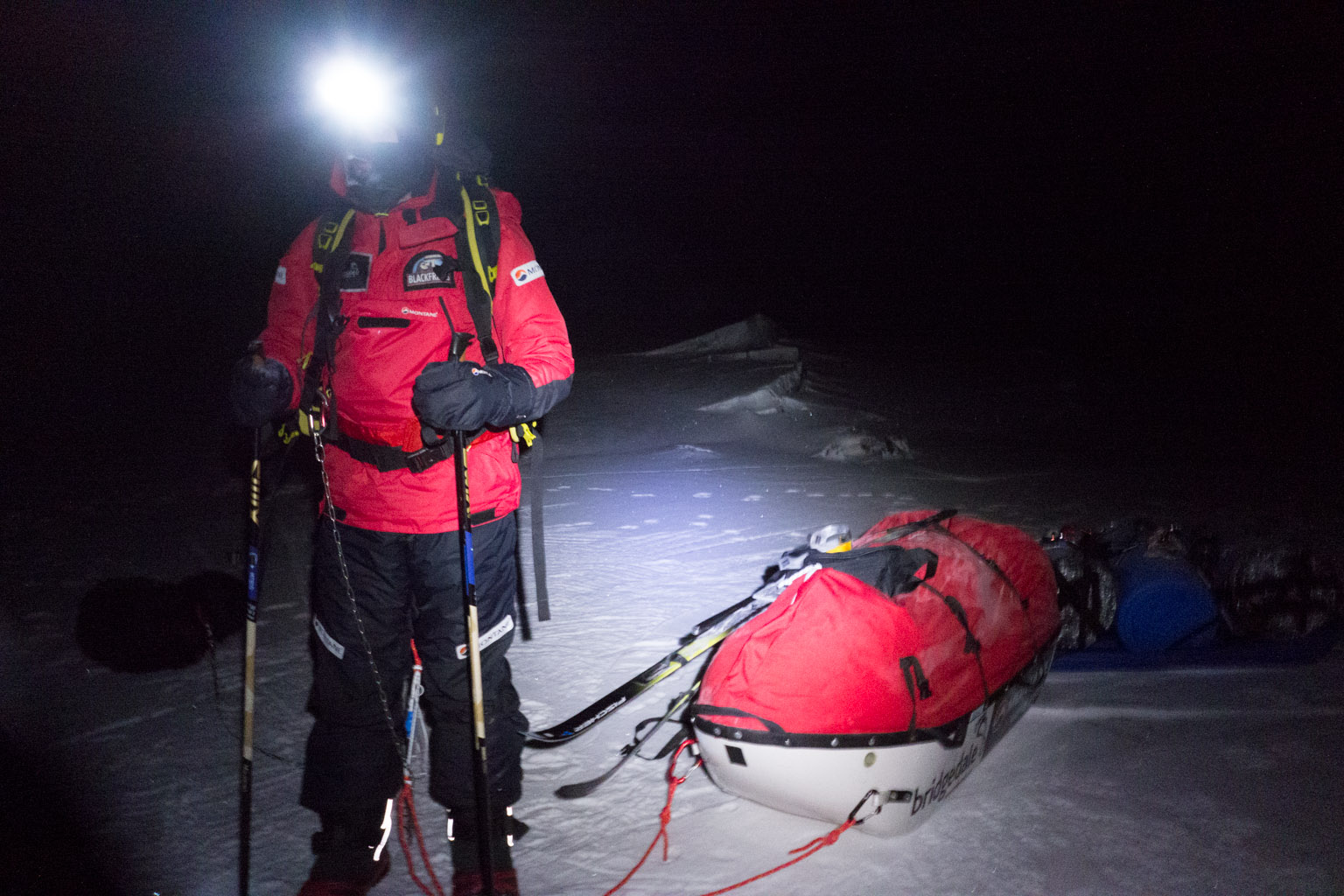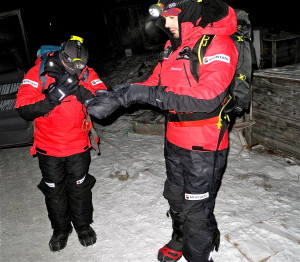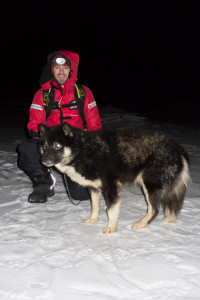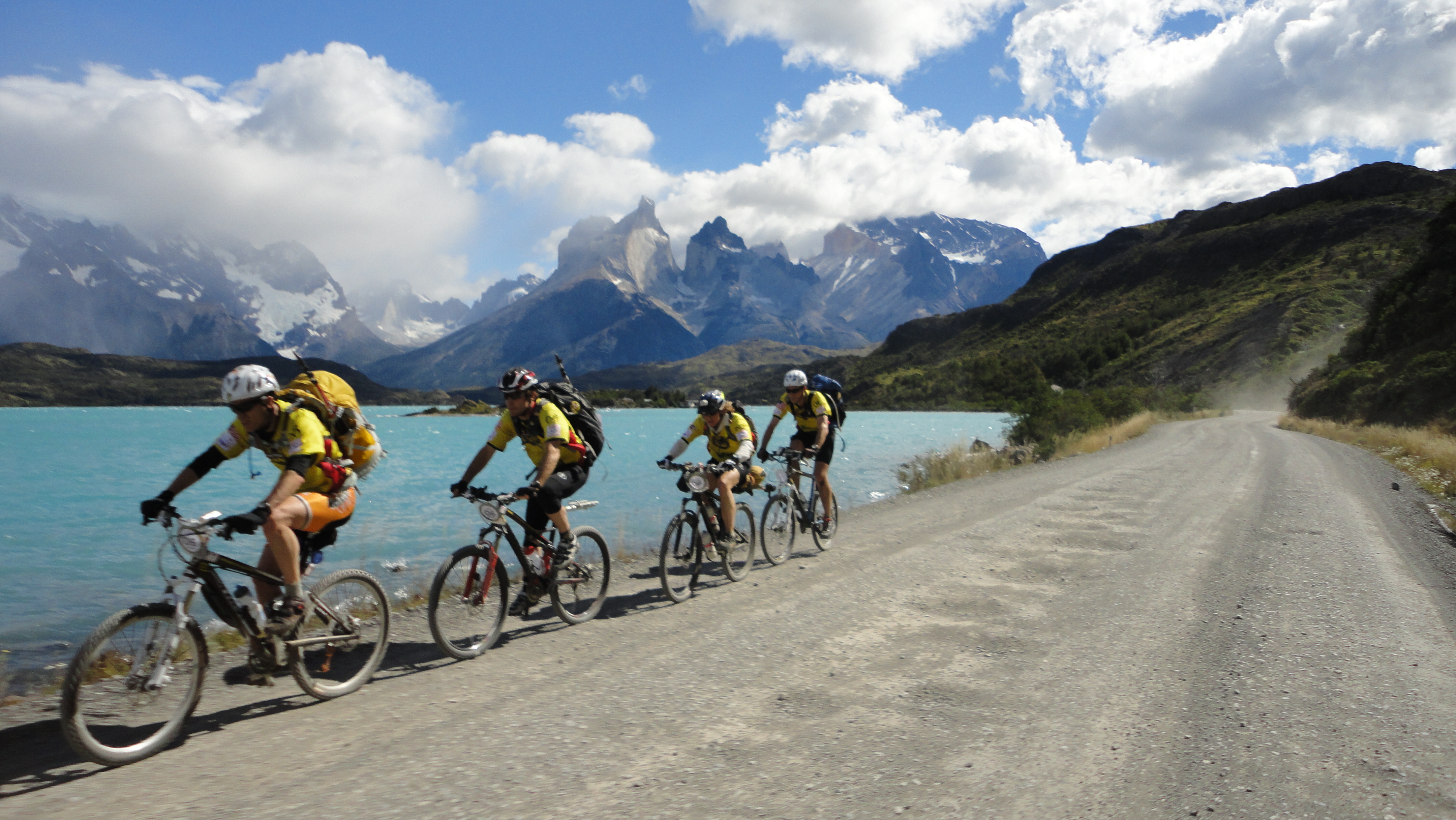There are two major implications of travelling unsupported: there must be no resupplies from the air or pre-laid caches and no physical locomotive assistance like wind kites, dogs or vehicles. Firstly, every single thing an expedition needs to survive, succeed and solve breakages must be carried or hauled. There is no ‘get out of jail free card’ if vital items break or supplies run out. Secondly, the sheer load will always vastly reduce speed of travel. Some journeys involve physical assistance but shun resupplies, taking on the label ‘without resupply’ but lacking the added strain of fully unsupported travel. What about the depots we planned to lay in the first year, Phase One of ‘The Dark Ice Project’, to feed the three subsequent legs up and down the Nares Strait in Phases One and Two? Are they not providing support for Phase Two since we would return home for the summer in between the phases? They are indeed. The journeys to and from Qaanaaq and the edge of the Arctic Ocean are simply transit, ‘positioning’ legs to take the place of aircraft. The unsupported attempt on the Pole, and the return, starts and finishes on that shoreline. The fifteen hundred miles or so of extra hard work will not go on record, yet may contain some of the most valuable experiences.
This raises a few questions about what counts, what is ‘allowed’ and what is not. There are, as has been stated ad nauseum, no rules or governing body, but common sense usually prevails and candid reporting is the unwritten code of honour. Some argue that wind support is not support since it is natural and a part of the environment. Unsurprisingly, these people are almost always those who use the wind and like the benefits of the unsupported label. Without doubt, comparing a wind-powered expedition with a man-hauled one is folly, rather like comparing a swimmer with a racing yacht. Kite-skiers can reach up to thirty miles an hour; it requires a skilled technique but is, nonetheless, supported.
Another bizarre distinction, which often gets glossed over by publicists employed to get newspaper column inches for expeditions, is that of stages. If you ran one mile per day for twenty- six days and then finished with a three hundred and eighty five-yard flurry on day twenty-seven, it is reasonable to say that you have not run a marathon. Unfortunately, the skewed logic which says otherwise is used more often than you would imagine. A particular ocean rower claims to be ‘the first woman to row solo across the Pacific Ocean’. The facts are that she rowed from island to island in three stages over three years, returning home in between.
A polar traveller for whom I have great respect claims to have circumnavigated Greenland. This he achieved over many years, using a non-continuous route and even travelling in opposite directions to prior stages. His journeys were, in reality, an epic series of brilliant expeditions that, I feel, are tarnished by the overall false claim.
The reason I believe this should be widely understood is not to denigrate the achievement of one person, but rather to give fair recognition to those who actually do exactly what they claim. For example, Chris Martin and Mick Dawson spent 189 days afloat to cross the Pacific for real in 2009. They did receive an airdrop as they neared the USA and have never claimed an unsupported status. The point here is to retain the gravity of truly great achievements. If Greenland has not yet been truly circumnavigated, that is no problem. It simply means that such an achievement is impossible, nigh on impossible or yet to be achieved. Honesty is the key and it means that no-one is misled or denied fair recognition. We rely on the good will and trust of the public and we must not betray that trust.
*Excerpt from his new book Maybe (Tricorn Books), which will be reviewed on Thursday
Alex Hibbert is a world-record holding polar expedition leader. Only twenty-seven years old, he has spent over one hundred and sixty-five days unsupported in the Arctic and has crossed the second largest icecap on Earth four times. In 2008 he completed the longest unsupported Arctic journey in history (at the time, the longest polar journey). He is also the author of three books, The Long Haul, Kalaallit Nunaat and Maybe, and is a globally published photographer.





